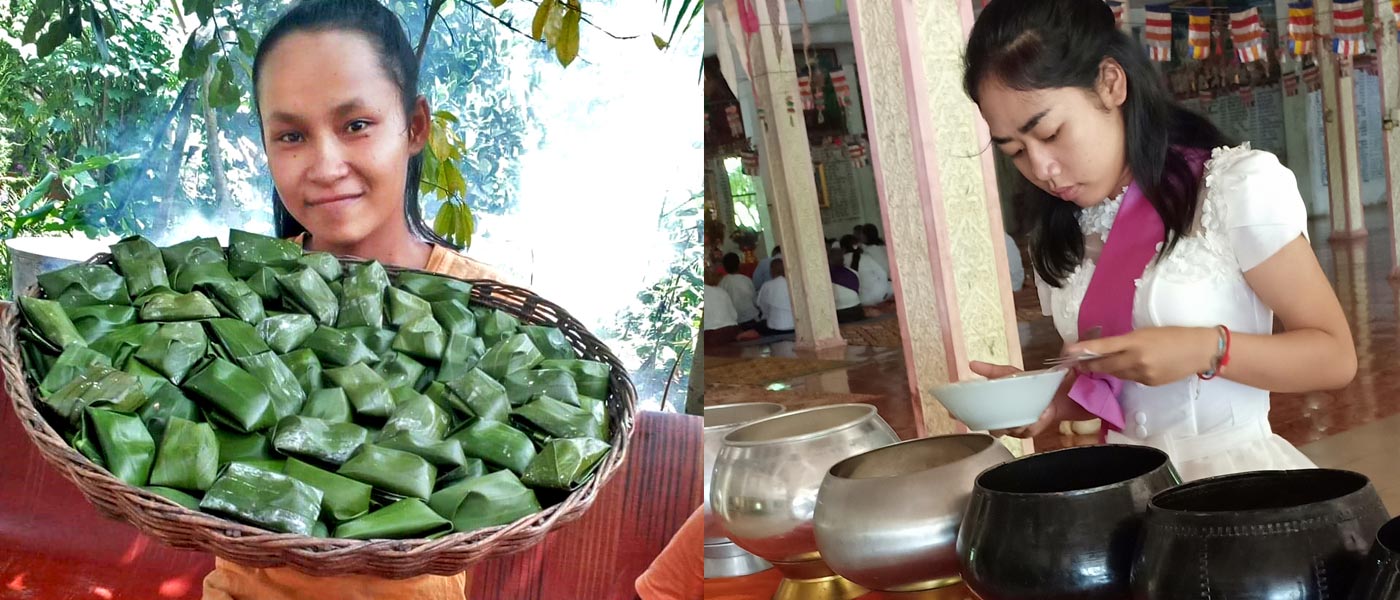News
Celebrating Pchum Ben festival and discovering the Center for Khmer Studies

Each year, school breaks for a week as Cambodians celebrate the important national festival of Pchum Ben. Srey On, Grade 10, shared her story.

Around late September or early October, Cambodia celebrates the fifteen day religious festival of Pchum Ben or Ancestors’ day. We prepare food and travel to nearby pagodas to give food to monks and make offerings to our deceased ancestors. I am not really a religious person or a person who believes in spirits, but I participate in the celebrations out of respect for our traditions and for fun.
I helped my mother prepare the traditional Cambodian cake, ‘Onsorm’. My mother molded rice, stuffed with bananas, into cakes and wrapped them in banana leaves and I tied them up. Once we were finished, I went all around the village giving the onsorm and a little money to the elderly. My mother told me we were giving alms for the spirits of our ancestors, but I saw it as giving to other people who needed it as well as showing respect for the older generation.

On the fifteenth and final day of the festival we went to the pagoda. Waking up at four in the morning, I helped my mother prepare different dishes for the monks. I was so tempted to eat the food, but my mother told me I could only eat once we had set food aside for the monks and my grandmother. Once we arrived at the pagoda, we gave food to the monks as it is a traditional way to ‘transfer merit’ to our ancestors. The pagoda was raucous, with people, talking, clanging dishes and monks chanting. Despite the chaos, I enjoyed interacting and celebrating with the people some of whom I hadn’t seen in quite some time. In the end, I was tired from all the walking around and helping, but I appreciated the festival, the relationships and the interactions with all the people around me.
The festival had ended, but our break from school had yet to come to an end. Before the break, I had heard about the Center for Khmer Studies (CKS) in Wat Damnak, Siem Reap. Using the time I had left before school started again, I decided to go to visit. My first impression was how beautiful and calming it was. It’s located in the middle of a pagoda and I was surprised at how peaceful it was, even though it’s in the middle of the city. I noticed many students sitting in and around the library. Some were reading books, some were doing research on laptops, and some were silently doing work. The environment was so different from my home and was a perfect place to study, work, and read. When I went into the library I was amazed. There were countless shelves with books about Cambodia in both Khmer and English, its history, politics, economy, and society. Not only that, there were computers to use for free. I picked out a book called ‘Cambodian Interlude,’ about Cambodia emerging from the time of the Khmer Rouge regime, during the United Nations’ preparation for elections in 1993. The next day, I went back and took some work to do. Unlike home, I was able to concentrate on my work which included writing this story. I like the place a lot and plan on going there more often.
I feel fortunate that my break from school touched on both the traditional and modern ways of life. My ancestors have participated in Pchum Ben festivities for centuries and I was glad to participate to continue the tradition. At CKS, I saw lots of young Cambodians studying. Many of them, I’m sure, are like me; the first in their family to pursue a higher education. Hopefully, that too, will become a tradition.